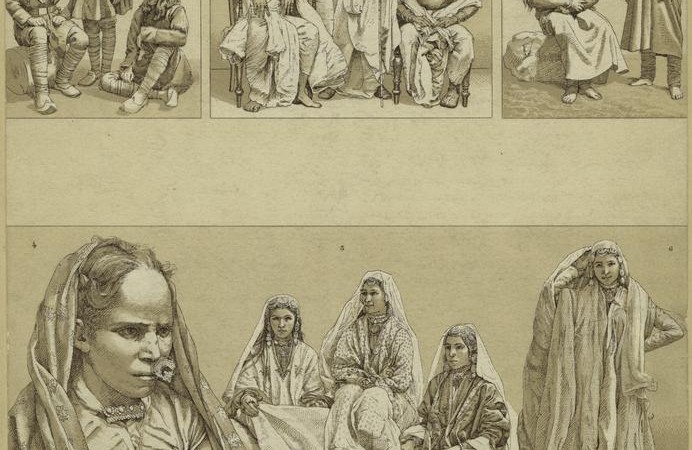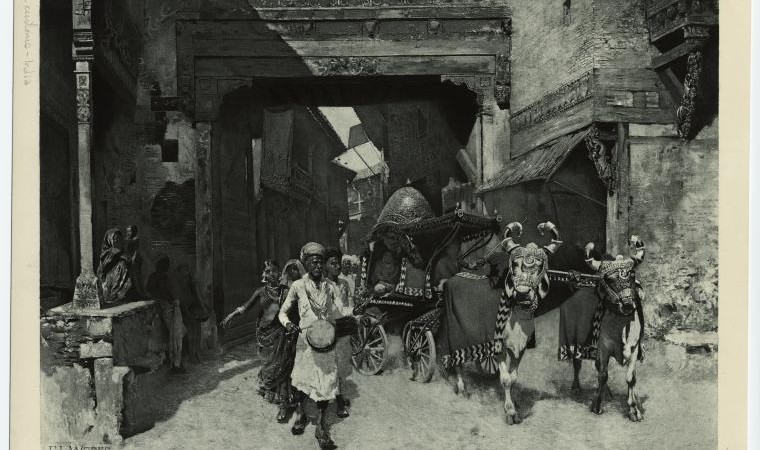
Various men and women in Hindustan (India). (1823–1838) Sketch by Andrea Bernieri. Photo from The New York Public Library Digital Collections.
Old images of people and places help us realise how much things have changed. Looking at old pictures takes us back to the days when life seemed simpler. In those faded facades and strange clothes, from one photo to the next, we remember how people once lived.
Earlier this month, the New York Public Library released more than 180,000 digitized items in the public domain. Readers can now access and download these archived materials from the library for free and also remix the materials to develop and share new content.
Among the digital archive are old photographs and sketches from Asia and the South Pacific regions showing how people lived in the then-colonized countries. The images provide a rare glimpse of architectures and clothes of the undivided Indian Sub-Continent.
Throughout India, you will find a number of beautiful grand palaces, which were built by emperors who ruled the region in different periods. Perhaps you've seen photos, but have you ever wondered how they appeared before photography was available everywhere? Take a look.

Sketch of the Palace of Agra, view from the river (1859). Image from The New York Public Library Digital Collections.
Jahangir Palace is a palace inside the Agra Fort, which bears the blend of Hindu and Central Asian architecture. It was used mainly by the Rajput wives of Mughal Emperor Akbar, who had it built.
Located at the centre of Delhi, the Red Fort (Palace of Delhi) was the residence of the Mughal emperor of India for two centuries, until 1857. It evolved over the years.
How were the lives of people then? Here are some sketches and paintings of the royals and people around them:
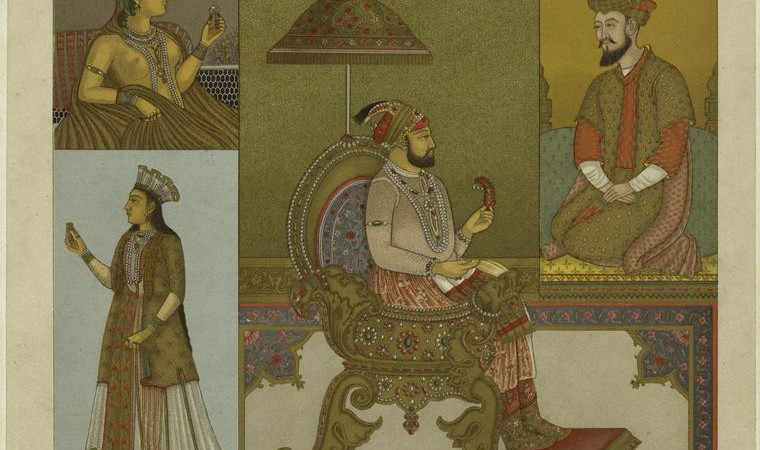
Rulers and women from India (1876–1888). Art by Chataignon. Image from The New York Public Library Digital Collections

A commander of the palace guard in Delhi (1845–1847). Image from The New York Public Library Digital Collections

Dancing Girls At Court Of Rewa, East Central India, 1863–8. Engraver Jacob Ettling. Image from The New York Public Library Digital Collections
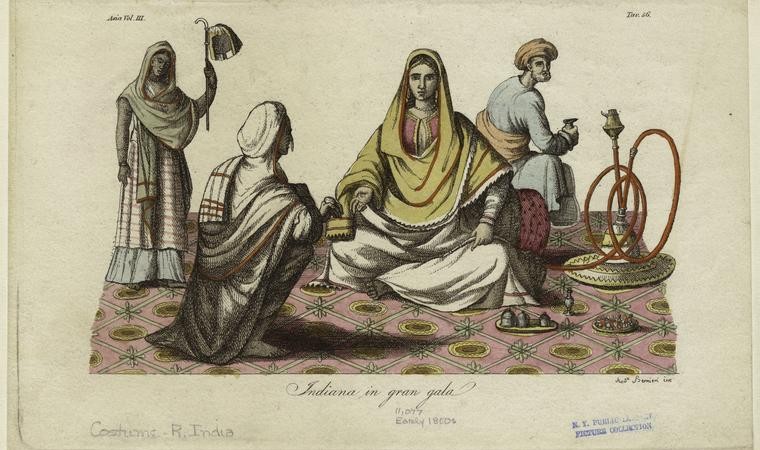
An elite Indian Muslim women (1823–1838). Sketch by Andrea Bernieri. Image from The New York Public Library Digital Collections.
And here are some of the sketches and paintings of common people around that time:

A Brahmin praying in the morning (1851). Lithographer Day and Son. Photo from The New York Public Library Digital Collections

A second Caste Pundit (scholar) 1899. Engraver Charles Laplante. Image from The New York Public Library Digital Collections
The world's earliest surviving camera photograph is from 1827. It took a while before photography reached India. Here are some rare photographs from 19th-century India:

Hindu Blacksmiths from Madras (1868–1875). Photo from The New York Public Library Digital Collections.
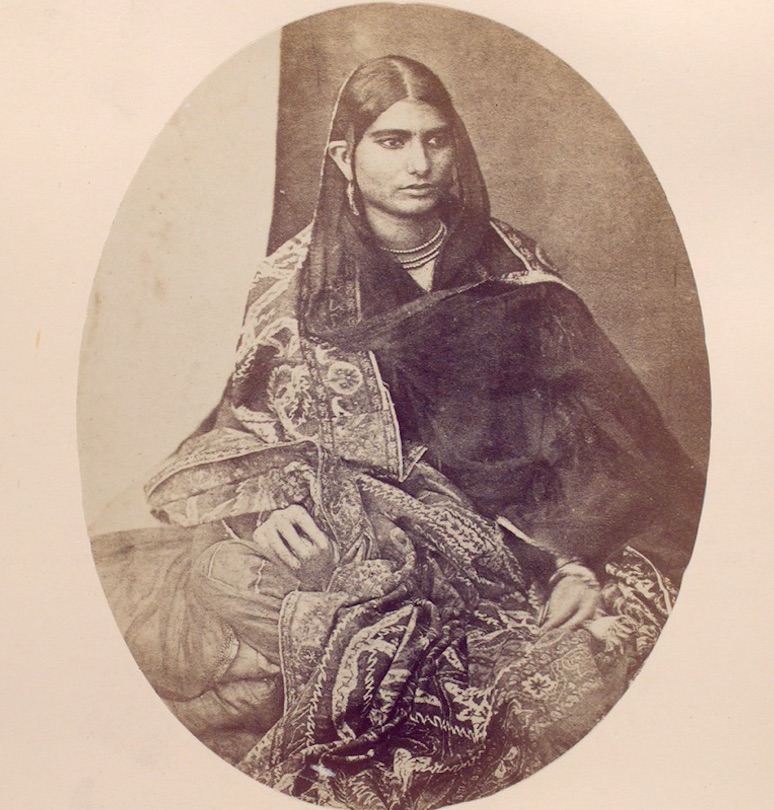
Diljaan, Bazar Woman, Saharanpoor (1868-1875) Photo from The New York Public Library Digital Collections
And here are some scenes of rituals and festivals from that time period:

The cremation ghat at Calcutta (1869–1871). Image from The New York Public Library Digital Collections




